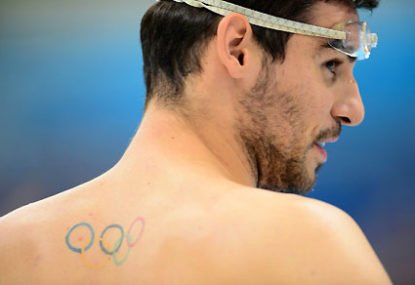'An iconic roster': LeBron, Steph, KD headline all-star cast for Team USA's shot at Olympic glory
LeBron James is going back to the Olympics for the first time in 12 years. Steph Curry is headed to the games for the…

The old expression, ‘what came first, the chicken or the egg?’ has now entered the world of Australian Olympic sports, as I find myself pondering this more and more in terms of sponsorship and recognition.
I remember sitting down to watch the 2012 London Olympic Games with my family. Like most Australians at the time, the big attraction was our swimmers. We were meant to be world beaters, nothing could stop us.
So it was disappointing to watch them go from favourites to non-contenders.
The 4x100m relay was the main event, with our men meant to bring home gold, but we didn’t even place. It was hard to comprehend and what made it worse was our marquee swimmer, James Magnussen, speechless in the post-event interview.
Following the poor performance at the Games, the Australian Sports Commission introduced ‘Australia’s Winning Edge’ a funding strategy which was set to take us from eighth to a top-five nation in the 2016 and 2020 Olympic games.
At Rio 2016, this plan failed.
[latest_videos_strip]
While swimming, rowing and cycling received the bulk of money brought in by the strategy, results did not follow. Australia went from the eighth in 2012 to tenth in 2016.
Winning Edge distributed its money based on the sports that were deemed to have the most success. However, this didn’t work, and in the process meant that the cost per medal for sports such as swimming and cycling was significantly higher than the cost per medal for sports such as shooting and athletics.
So perhaps it’s time Australia focussed less on funding the more popular sports, which are underperforming significantly, and look to fund and create exposure for sports where athletes are winning medals unexpectedly.
By distributing funding to a small handful of sports, Australia are dropping their chances of being able to achieve success in any other areas. What is the point of sending athletes to the Olympic Games if they haven’t been given the proper facilities, funding and exposure needed to perform?
While funding can be a positive, too much funding into any one sport can place mountains of pressure on the athletes. This is while athletes with the ability to perform well in less recognised sports are scratching and clawing for every dollar to fund their own training.
In the end, nobody is winning.